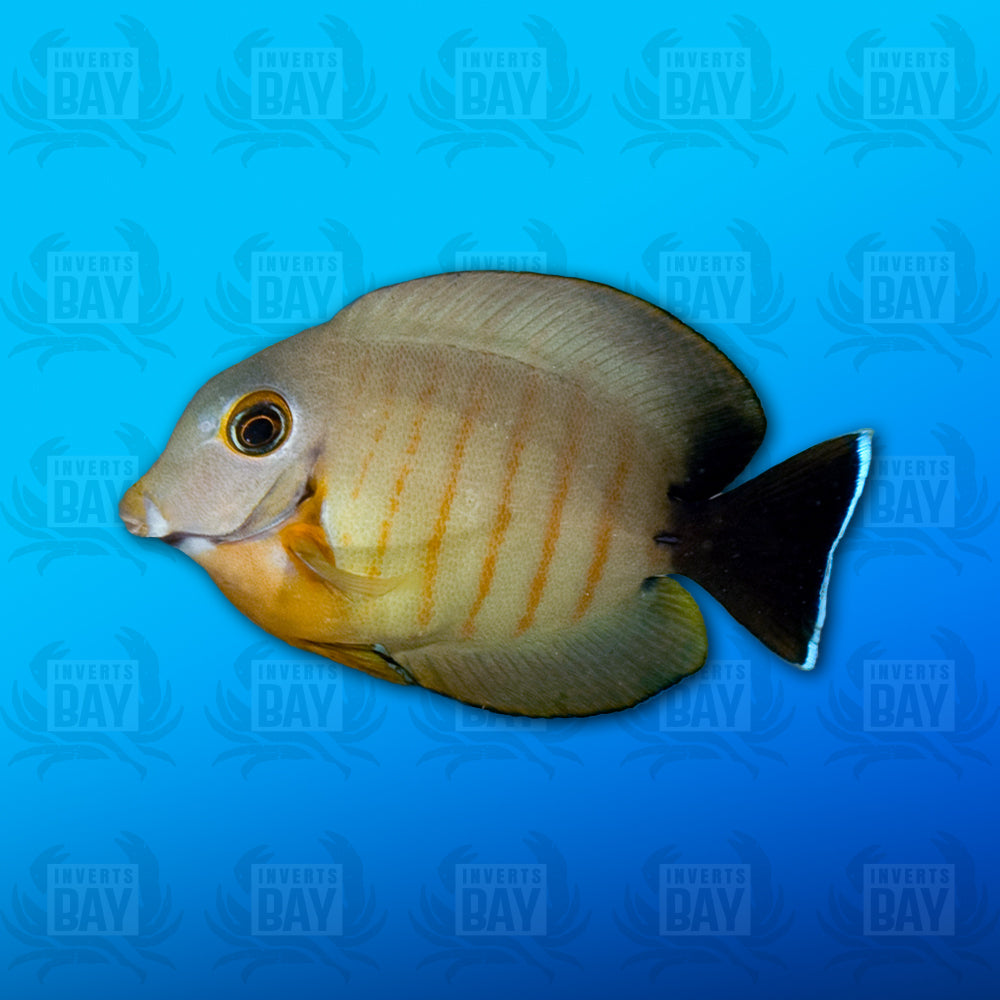(!) Online orders may be adjusted or canceled in the event of pricing errors or unavailable items.
1
/
de
1
Inverts Bay
Mimic Eibli Tang
Mimic Eibli Tang
Frais d'expédition calculés à l'étape de paiement.
Impossible de charger la disponibilité du service de retrait
The Mimic Eibli Tang (Acanthurus tristis) is a captivating species renowned for its juvenile mimicry of the Eibli Angelfish. As it matures, it undergoes a remarkable transformation, shifting from vibrant juvenile markings to a more subdued adult coloration. This species is native to the Indo-Pacific region, where it inhabits coral reefs and lagoons.
(REEF SAFE / INTERMEDIATE)
Essential Information:
- Common Names: Mimic Eibli Tang, Indian Ocean Mimic Tang
- Scientific Name: Acanthurus tristis
- Family: Acanthuridae
- Origin/Habitat: Inhabits the Indo-Pacific region, particularly around coral reefs and lagoons.
- Maximum Size: Typically grows up to 10 inches (25 cm).
- Lifespan: In captivity, they can live up to 10 years with proper care.
- Level of Difficulty: Intermediate; requires experienced care due to specific environmental needs.
Appearance & Physical Traits:
- Coloration & Pattern: Juveniles display striking orange vertical stripes on a cream-colored body, resembling the Eibli Angelfish. As they mature, these stripes fade, and the body transitions to a pale brown with darker dorsal, anal, and tail fins.
- Body Shape & Structure: Oval-shaped body with a laterally compressed profile; equipped with sharp spines on the tail for defense.
Habitat & Environmental Needs:
- Minimum Tank Size: A 125-gallon (475-liter) tank is recommended for a single individual; larger tanks are preferable for groups.
- Water Temperature: Maintain between 72°F and 78°F (22°C to 26°C).
- pH Level: Keep between 8.1 and 8.4.
- Specific Gravity: Optimal range is 1.021 to 1.025.
- Aquascape: Provide ample live rock formations and caves for hiding; ensure the tank has a moderate to strong water flow to mimic natural reef environments.
Diet & Feeding:
- Diet Type: Herbivorous
- Preferred Foods: A varied diet including high-quality marine algae, spirulina, and supplemented with occasional meaty foods like brine shrimp.
- Feeding Frequency: Feed small amounts 2 to 3 times daily.
Behavior & Compatibility:
- Temperament: Generally peaceful; may exhibit territorial behavior, especially when establishing dominance.
- Social Behavior: Can be kept singly or in groups; ensure ample space to reduce territorial disputes.
- Tank Mate Compatibility: Compatible with other peaceful marine species; avoid housing with aggressive fish that may bully them.
- Activity Level: Active swimmers, often staying in the middle to upper levels of the tank.
Care Considerations & Additional Notes:
- Ease of Care: Intermediate; requires experienced care due to specific environmental needs.
- Special Requirements: Regular water changes and monitoring of water parameters are essential to maintain health.
- Breeding Info: Not commonly bred in captivity; information on breeding is limited.
- Additional Notes: Providing ample hiding spots and territories can help reduce stress and territorial disputes.
Share

